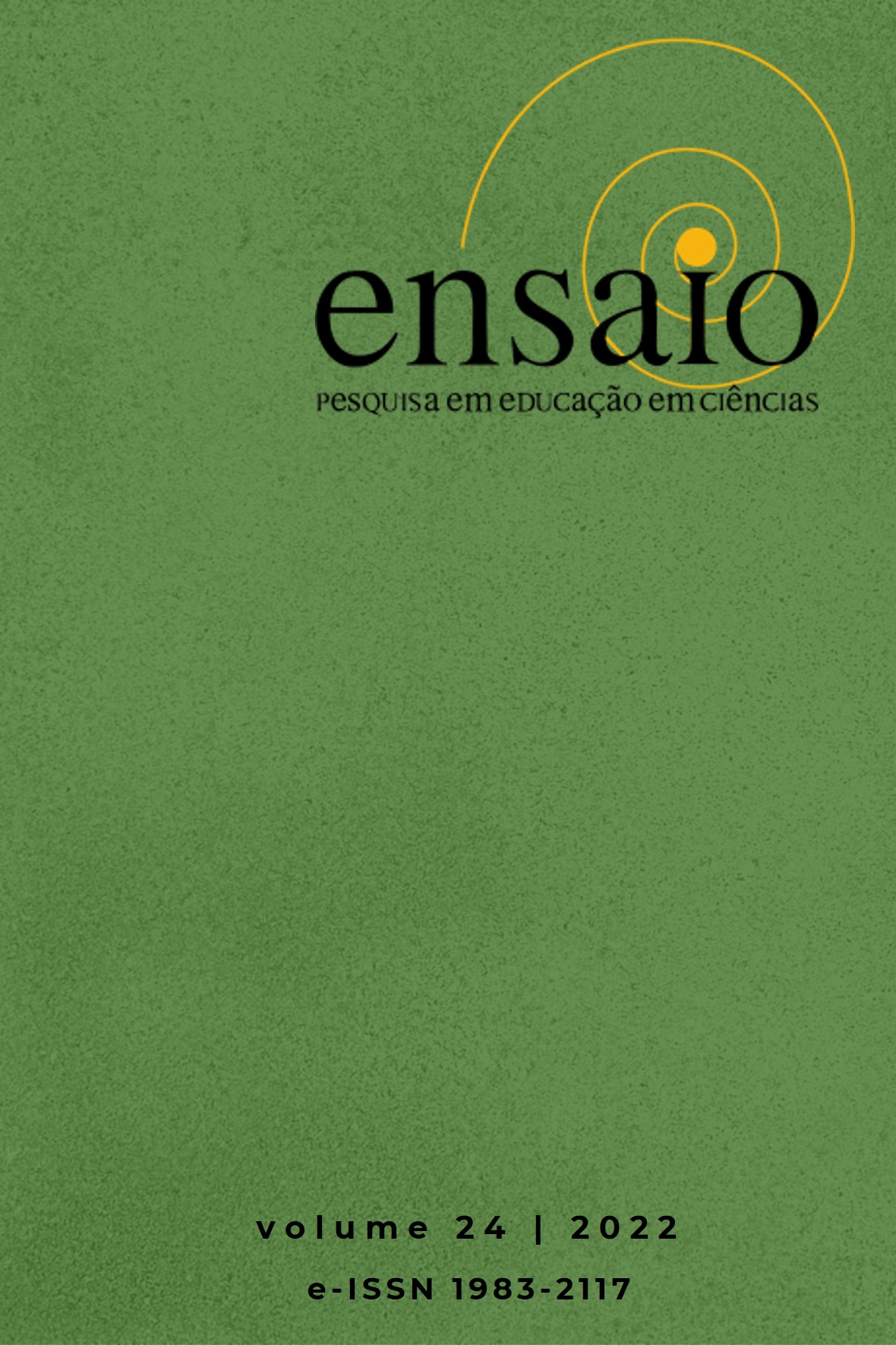ARTIGO-PARECER: A DIALÉTICA CONSCIENTE/NÃO-CONSCIENTE NA CONCEPÇÃO DE MUNDO: IMPLICAÇÕES TEÓRICAS, METODOLÓGICAS E PRÁTICAS PARA O ENSINO DE CIÊNCIAS DA NATUREZA NA PERSPECTIVA HISTÓRICO-CRÍTICA
CONSCIOUS/NON-CONSCIOUS DIALETIC IN CONCEPTION OF THE WORLD: THEORETICAL, METHODOLOGICAL AND PRACTICAL IMPLICATIONS FOR THE TEACHING OF NATURE SCIENCES FROM A HISTORICAL-CRITICAL PERSPECTIVE
DOI:
https://doi.org/10.1590/1983-21172022240116Keywords:
concepç˜ao de mundo, pedagogia histórico-crítica, dialética consciente/não conscienteAbstract
The debate on the conception of the world has gained prominence in historical-critical pedagogy and we believe it is pertinent to point out an often forgotten aspect that must be taken into account in our investigations: the non-conscious dimension. The present text was written at the invitation of the editors of this journal, based on our opinion on the article that, when published, was entitled Pedagogical theories and conceptions of the world of undergraduates in Science and Biology by Pressato and Campos, (2022). Seeking to alert to the risks of establishing direct relationships between the appropriation of systematized knowledge and the formation of a coherent, unitary, and revolutionary conception of the world, this text brings some reflections on its limits and possibilities in the school education’s role, as the considerations about methodological issues which need to be considered in the investigation. We conclude that the conscious/non-conscious dialectical movement in the formation and transformation of the conception of the world makes this a complex phenomenon and impossible to be investigated outside the activity of the concrete subjects. For this same reason, forming coherent and unitary conceptions of the world does not depend only on the school but on the creation of forms of sociability that go against the grain of bourgeois ideology.
Downloads
References
Abrantes, A. A., & Eidt, N. M. (2019). Psicologia histórico-cultural e a atividade dominante como mediação que forma e se transforma: contradições e crises na periodização do desenvolvimento psíquico. Obutchénie. Revista de Didática e Psicologia Pedagógica, 3(3), 1–36. https://doi.org/10.14393/OBv3n3.a2019-51694
Aita, E. B., & Tuleski, S. C. (2021). O conceito de inconsciente para Vigotski: primeiras aproximações. Fractal: Revista de Psicologia, 33(2), 62-71. https://doi.org/10.22409/1984-0292/v33i2/5863
Baptista, G. C. S (2014). Do cientificismo ao diálogo intercultural na formação do professor e ensino de ciências.Interações, v. 31, p. 28-53
Cobern, W. & Loving, C. (2001) Defining science in a multicultural world: implications for science education. Science Education, New York, v. 85, n. 1, p. 50-67.
Duarte, N. (2016). Os conteúdos escolares e a ressurreição dos mortos: contribuição à teoria histórico-crítica do currículo. Campinas, SP: Autores Associados.
E-Hani, C & Mortimer, E. F. (2007). Multicultural education, pragmatism, and the goals of science teaching. Cultural Studies of Science Education, v. 2, n. 3, p. 657-702.
Gramsci, A. (1978). Concepção dialética da história. Rio de Janeiro, RJ: Civilização Brasileira.
Ho, C. M. (2020). Sobre a moral revolucionária. In P. de Oliveira (Org.) Ho Chi Minh: vida e obra do líder da libertação nacional do Vietnã (pp. 203-212). São Paulo, SP: Anita Garibaldi.
Leontiev, A. N. (2021). Atividade, Consciência e Personalidade. Tradução de Priscila Marques. Bauru, SP: Mireveja.
Martins, L. M. (2016). A dinâmica consciente/inconsciente à luz da psicologia histórico-cultural. Revista Ibero-Americana de Estudos em Educação, 11(2), 678-689. https://doi.org/10.21723/RIAEE.v11.n2.p678
Marx, K. (2011). O capital. Livro I. São Paulo: Boitempo Editorial.
Rosa, J. M. (2018). Apropriação dos princípios fundamentais da teoria da evolução e os alcances abstrativos na concepção de mundo. (Tese Doutorado). Universidade Estadual Paulista, Araraquara, SP.
Saviani, D. (1985). Educação: do senso comum à consciência filosófica. 6 ed. Campinas, SP: Cortez Editora/Autores Associados.
Saviani, D. (2017). Pedagogia histórico-crítica, educação e revolução. In P. J. Orso, J. Malanchen, & A. P. Castanha. Pedagogia histórico-crítica, educação e revolução: 100 anos da revolução russa (pp. 53-71). Campinas, SP: Armazém do Ipê.
Pressato, D., & Campos, L. M. L. (2022). As teorias pedagógicas e as concepções de mundo dos licenciandos em ciências e biologia. Ensaio: Pesquisa em Educação em Ciências, 24, 1-19. https://doi.org/10.1590/1983-21172021240103
Toassa, G. (2006). Conceito de consciência em Vigotski. Psicologia USP, 17(2), 59-83.
Vygotski, L. S. (2001). Obras escogidas. Tomo II. Madrid: Visor.


